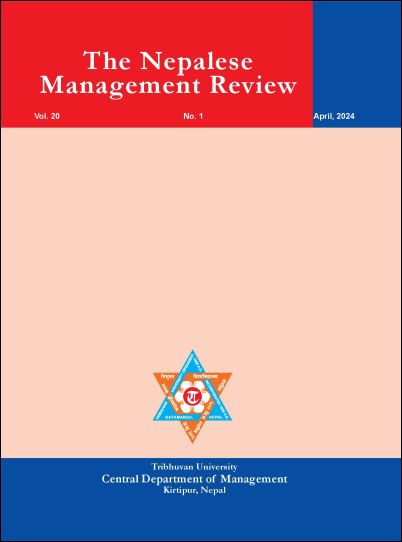Factors Determining Employee Retention of Development Banks in Nepal
DOI:
https://doi.org/10.3126/tnmr.v20i1.64740Keywords:
Employee Retention, Employee Satisfaction, Employee Turnover, Learning and Opportunity, Descriptive StatisticsAbstract
This study focuses on employee retention in development banks of Nepal, addressing the challenge posed by increased talent mobility due to globalization. It aims to identify factors influencing retention and understand employees' perceptions of retention practices. The study explores the relationship between leadership approach, salary, learning opportunities, employee satisfaction, and retention. Retaining key employees is crucial for organizational stability and growth, especially in development banks, which play a vital role in Nepal's economic development.
The research includes 388 permanent employees, primarily aged 20-29, with a higher male representation. Data is collected through questionnaires and interviews. The analysis involves descriptive and inferential statistical tools, revealing that leadership, salary, learning opportunities, and employee satisfaction positively impact retention. However, the study's limited scope and Nepal-specific context might limit the findings' applicability globally. Moreover, the sample size and data collection methods could influence generalizability.
Thus, this research sheds light on employee retention factors in Nepalese development banks, guiding the formulation of effective retention policies.




